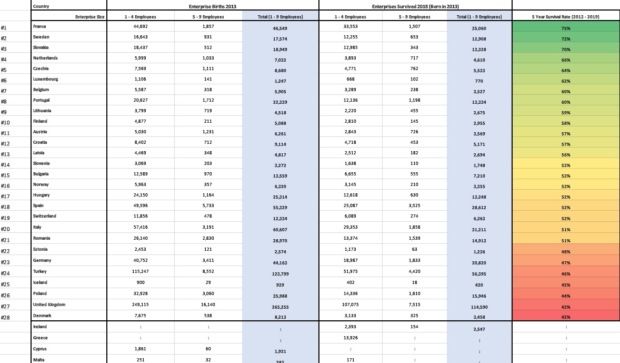News
Small businesses have woeful survival rate in Denmark
This article is more than 4 years old.
According to figures from 2013-2018, under 50 percent of micro enterprises are still in operation five years after being launched

Within five years, the bulbs are off for most small firms (photo:
According to UK business loan firm money.co.uk, Denmark has a feeble track record when it comes to producing lasting micro enterprises – businesses with less than ten employees.
Money.co.uk looked into the performance of 28 European countries from 2013-18 and found that Denmark rated last for five-year business survival rates.
Of the 8,213 micro enterprises established in 2013, only 3,458 (or 42 percent) had survived by 2018.
READ ALSO: Denmark sees highest consumer price hike in almost a decade
France tops list
That ratio was the worst overall, behind fellow strugglers UK (43 percent), Poland (44), Iceland (45) and Turkey (46).
Meanwhile, France scored best in Europe with a five-year survival rate of 75 percent, followed by Sweden (73) and Slovakia (70).
Other notables included the Netherlands (66 percent), Belgium (60), Finland (58), Norway (53) and Germany (47).
Click on image below for more details.











































